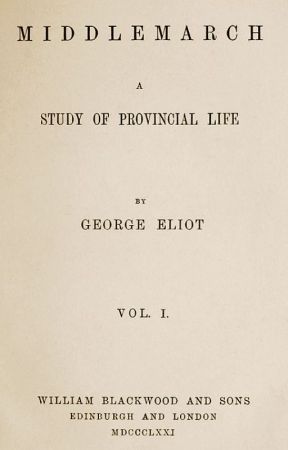Every limit is a beginning as well as an ending. Who can quit young
lives after being long in company with them, and not desire to know
what befell them in their after-years? For the fragment of a life,
however typical, is not the sample of an even web: promises may
not be kept, and an ardent outset may be followed by declension;
latent powers may find their long-waited opportunity; a past error
may urge a grand retrieval.
Marriage, which has been the bourne of so many narratives,
is still a great beginning, as it was to Adam and Eve, who kept
their honeymoon in Eden, but had their first little one among the
thorns and thistles of the wilderness. It is still the beginning
of the home epic--the gradual conquest or irremediable loss
of that complete union which makes the advancing years a climax,
and age the harvest of sweet memories in common.
Some set out, like Crusaders of old, with a glorious equipment
of hope and enthusiasm and get broken by the way, wanting patience
with each other and the world.
All who have cared for Fred Vincy and Mary Garth will like to
know that these two made no such failure, but achieved a solid
mutual happiness. Fred surprised his neighbors in various ways.
He became rather distinguished in his side of the county as a theoretic
and practical farmer, and produced a work on the "Cultivation of
Green Crops and the Economy of Cattle-Feeding" which won him high
congratulations at agricultural meetings. In Middlemarch admiration
was more reserved: most persons there were inclined to believe
that the merit of Fred's authorship was due to his wife, since they
had never expected Fred Vincy to write on turnips and mangel-wurzel.
But when Mary wrote a little book for her boys, called "Stories
of Great Men, taken from Plutarch," and had it printed and published
by Gripp & Co., Middlemarch, every one in the town was willing
to give the credit of this work to Fred, observing that he
had been to the University, "where the ancients were studied,"
and might have been a clergyman if he had chosen.
In this way it was made clear that Middlemarch had never been deceived,
and that there was no need to praise anybody for writing a book,
since it was always done by somebody else.
Moreover, Fred remained unswervingly steady. Some years after
his marriage he told Mary that his happiness was half owing
to Farebrother, who gave him a strong pull-up at the right moment.

YOU ARE READING
MIDDLEMARCH (Completed)
ClassicsMiddlemarch, A Study of Provincial Life is a novel by the English author George Eliot, first published in eight installments (volumes) during 1871-72. The novel is set in the fictitious Midlands town of Middlemarch during 1829-32, and it comprises...
